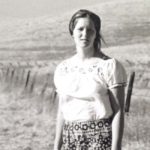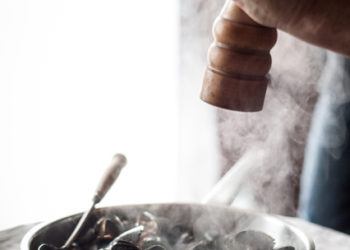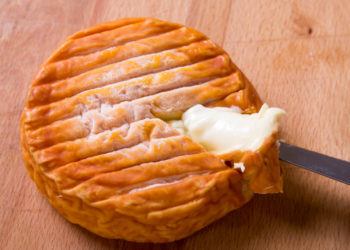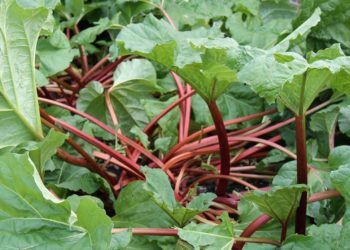My first years in Sonoma County were spent in a small cottage on Old Lakeville Road Three, where I raised my two girls amidst the large dairy farms, undulating hills and valleys of hay, and majestic corridors of Eucalyptus trees planted a century earlier as windbreaks.
Each May, the hay was cut and in my memory of those years, it always rains soon after this harvest. The complex aroma of new-mown hay mingled with warm spring rain and the slightly menthol fragrance of wet Eucalyptus remains, all these years later, nearly painfully evocative of these Lakeville years.
The end of the rainbow
One spring just after the hay had been cut, my boyfriend and I took an indulgent afternoon nap and as we lay there on the edge of sleep, a soft rain began to fall. I don’t know how long we slept, but it was the quiet, a sensual stillness, that rustled us out of our slumber and into one of the most glorious sights I have ever seen: Just beyond my window, a tall patch of reedy grass glowed as if it were on fire, raindrops shimmering on the thin grasses like diamonds caught in sunlight. We didn’t speak. We just sat there, hand-in-hand, gazing at this small miracle of beauty. He later described the sight as the end of a rainbow, but to me, it was the pot of gold itself.
After the girls had gone to sleep, I would sometimes take walks through the low hills, especially on nights when the moon was full, or nearly so, and listen to owls hooting to each other from every corner of the land. In the spring, moonlit nights were cool, the air crisp, the sky a silvery blue bowl full of stars.
Milk from Mulie, surprise eggs from an independent hen
Although I had been intrigued by food and cooking since I was a little kid, my palate was shaped by our years in Lakeville. When our landlady, Dottie Henning, gave us milk from Mulie, the family cow, I spooned off the thick cream, saved a little for the coffee I had just begun to drink, and taught my girls to make butter with the rest of it. During a party one Easter, the girls and their friends found not only the six dozen eggs I had dyed the night before, but several dozen white ones, too, laid by an independent hen in the stump of an old Eucalyptus tree behind our house.
There in Lakeville, I learned to let myself be surprised by nature, and to let our meals be shaped by its bounty. We grew a few things, mostly tomatoes, spinach, potatoes, and broccoli, gathered blackberries along country roads, and shopped at farm stands, a butcher shop, and two cheese factories. We drove to the coast for fresh salmon and bought milk at Miller’s Drive-in Dairy in Petaluma, where everything came in glass bottles.
Occasionally, we had breakfast at Gilardi’s Lakeville Marina, which years later became Phyllis’s Weird Food and Papa’s Taverna, a wildly delightful place, especially downstairs with its kitschy decor, full bar, and Greek dancing.
Thomas Hardy Country
The history of the Lakeville marina stretches back to 1852, when it was known as Lakeville Landing, the point of entry for visitors to the county at a time when there were no highways and few roads. The river—really more of a broad creek and tule marsh—was shallow; steamboat captains were reluctant to traverse its length and so passengers were dropped off here, to board stagecoaches to complete the bumpy journey to town. Oxcarts followed with luggage and supplies.
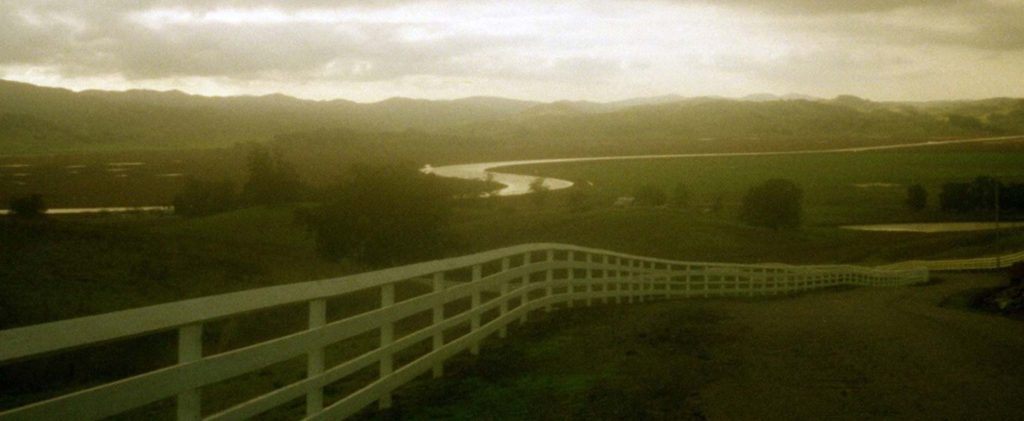
The S curve in the Petaluma River is one of the most iconic images of Lakeville, though you must rise above the valley floor to see it.
I’ve always thought of Lakeville as Hardy country, in part because I studied Thomas Hardy during our years there and in part because this land really is very much like his fictional Wessex. I can imagine Tess tending cows here and in my mind’s eye see Eustacia Vye gazing longingly towards San Francisco. How far away the world seems from this magical enclave.
I haven’t visited Lakeville as much as I did a few years ago, as I have found the grapevines that are slowly spreading over much of the land mildly distressing, not so much a problem in themselves—grapes are an agricultural product and if they allow farmers to keep their land, who am I to complain?—but rather a distressing signal that this precious place has been discovered.
Lakeville is a gateway to Sonoma Valley, Napa Valley, and Sonoma County itself, its pristine wetlands and open hillsides a signal that we are, indeed, a world apart. Yet we are about to lose it, a tragedy that lies far beyond my abilities of description.
Postscript: I read this story at Zebulon Lounge, which for a time hosted monthly themed readings on, I think, the second Monday of each month. I had agreed to host the June 2007 reading and initially chose Fathers and Daughters as the theme. When it was announced that Graton Rancheria was planning to build a casino and hotel in Lakeville, near the intersection of Highway 37 and Lakeville Rd., I quickly changed the theme to Lakeville Tales. It was a magical night, with a standing-room only crowd and a wonderful surprise: Dottie and two of her sons attended. Eight readers told varied tales and it was, by all measures, a wonderful night. The next morning, we awoke to the news that the tribe had withdrawn its plans. It felt as if our passion, our love, had saved Lakeville, though, of course, it didn’t. But something and someone did: Scores of acres are now protected by the Sonoma Land Trust.



